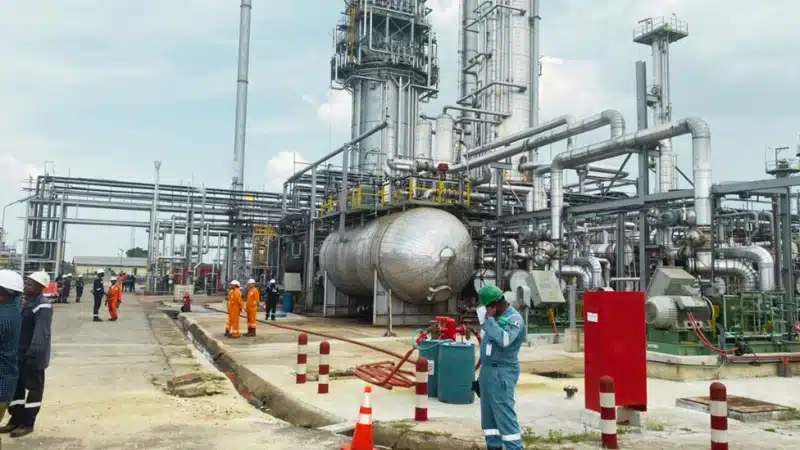Top Stories
Port Harcourt Refinery Shuts Down After Multi-billion Dollar Rehabilitation

Barely a month after the Port Harcourt Refinery seemingly resumed operations, the facility reportedly ceased functioning.
The Publisher Nigeria understands that lifting Premium Motor Spirit (PMS), popularly known as petrol or fuel, had stopped as of Thursday, December 19, 2024.
According to The PUNCH, the cessation of petrol lifting particularly occurred on Friday, December 13, as the 18-arm loading bay of the new Port Harcourt refinery was found to be vacant.
While approximately 18 trucks were observed along the busy road leading to the refinery, journalists who visited the refinery noted that nine trucks were parked within the yard, and the loading bay remained empty.
The depot, typically bustling with activity as tankers vie for space in the parking area, was notably quiet, with virtually no vehicular or human activity related to operations.
Port Harcourt Refinery Resumes Operation
It is worth recalling that the inauguration of the plant, which has a production capacity of 60,000 barrels per day, was conducted by Mele Kyari, the Chief Executive Officer of the Nigerian National Petroleum Company Limited, on Tuesday, November 26, 2024.
This event was celebrated with much enthusiasm following the approval and expenditure of $1.5 billion in March 2021 for the facility’s rehabilitation.
During the reopening, petrol was lifted to the delight of the gathered crowd; however, reports indicate that fewer than 10 trucks of petrol were actually lifted that day, contrary to claims that approximately 200 trucks had departed from the bay.
Furthermore, our correspondent noted that shortly after Kyari’s return to Abuja, operations reverted to their previous state amid allegations from stakeholders suggesting that the petrol lifted during the inauguration was merely old stock from the storage tank.
Three weeks prior, when newsmen conducted an initial visit to the refinery, it was observed that the loading bay was unoccupied, with no products being lifted.
In light of this observation, the Petroleum Products Retail Outlets Owners Association of Nigeria explained that operations had been reduced due to the calibration of meters at the loading bay and the de-watering of existing stock, which needed to be cleared to allow for the reception of newly refined products.

